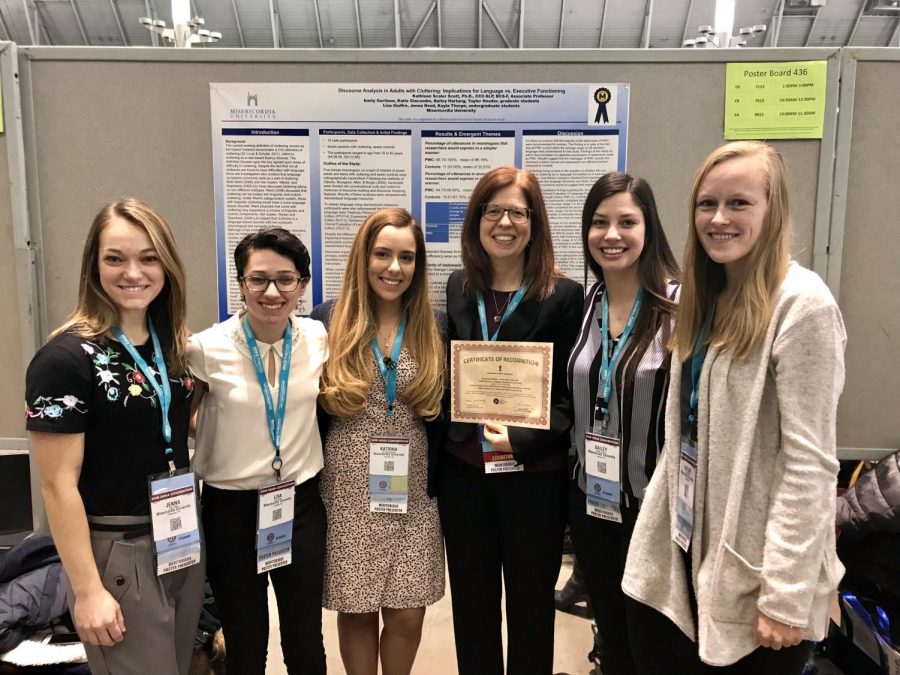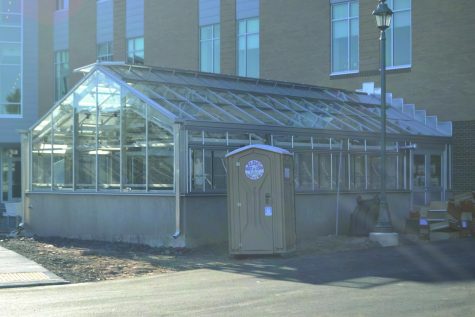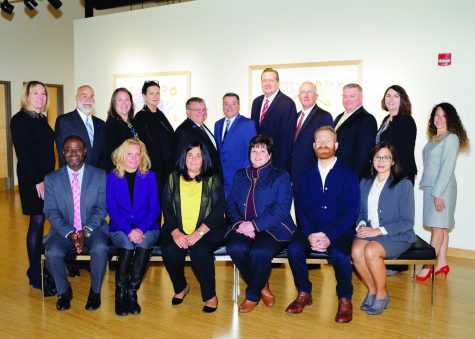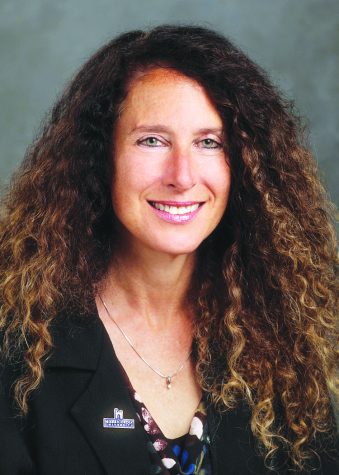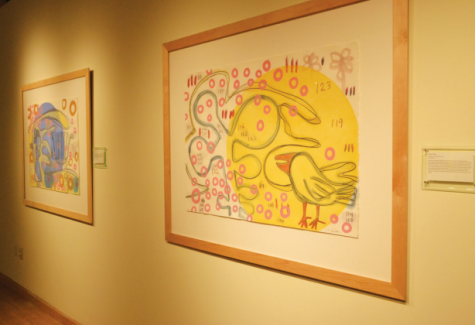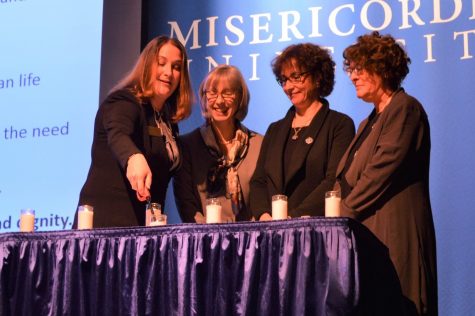SLP Research Group Honored
From left to right, Jenna Reed, Lisa Giuffre, Katrina Giacumbo, Dr. Kathleen Scaler Scott, Bailey Hartung, and Taylor Header pose in front of their recognized poster.
February 9, 2019
A research poster by a student-faculty research team in the Department of Speech-Language Pathology was one of 51 chosen out of 2,122 submissions to receive the “Meritorious Poster” recognition for their study on the communication disorder, cluttering.
The group received the honor during the 2018 American Speech-Language-Hearing Association Convention, in Boston, MA,
The Meritorious Poster Submission recognition is for proposals judged by the Convention Program Committee to show “extraordinary, exceptional, and innovative work.’’ Meritorious posters are distinguished in the ASHA Convention Program book with a ribbon icon. Research teams receive a certificate and a ribbon to mark posters with the achievement during their presentation.
The research team consisted of students Emily Gurtizen, Katrina Giacumbo, Bailey Hartung, Taylor Header, Jenna Reed, Lisa Giuffre, and Kayla Thorpe and faculty mentor Kathleen Scaler Scott, Ph.D., CCC-SLP.
Their study, “Discourse Analysis in Adults with Cluttering: Implications for Language vs. Executive Functioning,” looked at the efficiency of communication in people who clutter said Dr. Scaler Scott.
“People often wonder whether those who clutter have a language disorder. We are trying to explore whether what is perceived to be a language disorder is truly a language disorder or a difficulty with planning and organizing,” remarked Scaler Scott.
The results for their group of 14 participants, seven who do not clutter and seven who do, showed that those who clutter were less efficient in getting their message across than controls, or those who do not clutter. The findings also pointed more toward problems in planning and organizing rather than toward a true language disorder.
Dr. Scaler Scott always finds it an honor to receive recognition for research, but to receive it for a study related to cluttering was an added privilege and not common.
“That doesn’t happen every day, since less is known about cluttering than many other communication disorders. Any honor we receive increases the awareness of cluttering, which is part of my mission to help others with this communication disorder.”
The Meritorious poster title brought many benefits, but one unexpected negative.
“I feel like it put a little more pressure on us, because we knew people would come up to us at the convention to ask more questions simply because the poster received an award,” said Reed, a junior speech-language pathology student.
Giuffre, a sophomore speech-language pathology student, added that they had little free time during their presentation as there was a steady stream of people the entire time. Fortunately, it was not a challenge to keep up with the crowd due to the number of presenters the team had.
“There were many people who were amazed to see so many presenters at our poster. They were surprised to see the number of students interested in research from our school,” remarked Header, a senior speech-language pathology major.
Team members said that high student interest in research may be partly attributed to visibility of research in the speech-language pathology department.
“I joined the team as a freshman, which isn’t really common. A lot of people were surprised when I told them I was on a research team my first semester here. I have friends who are in speech-language pathology programs in other schools and they don’t have this kind of opportunity,” said Giuffre.
Hartung, a senior speech-language pathology student added, “We were never pressured to join research teams, but we were given information about them and basically told that if we’re interested, here is a list of professors you can contact.”
“As a freshman, I just wanted to make use of any opportunity given to me, especially the ones in my major,” said Reed.
Approximately more than 15,000 people attend the ASHA Convention every year. The convention is the premier annual professional education event for speech-language pathologists, audiologists, and speech, language and hearing scientists.

